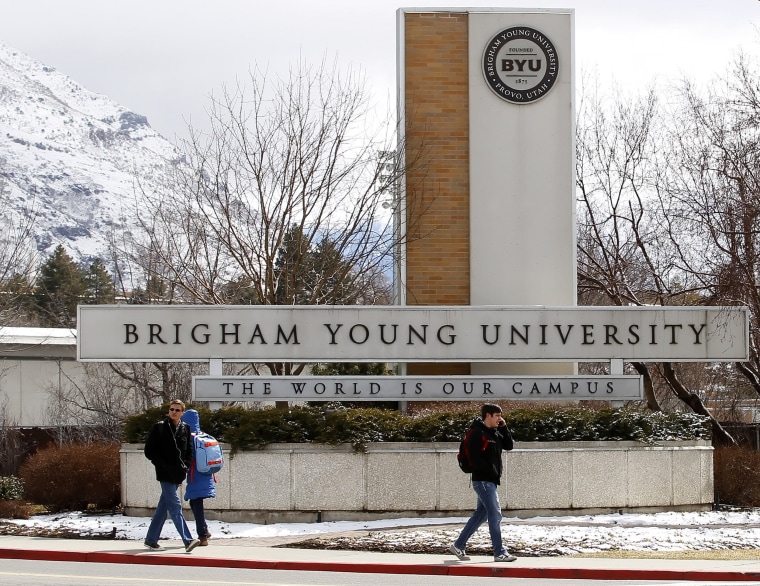Brigham Young University announced Wednesday that it has made changes to its honor code system in response to recent protests from students and alumni.
In a detailed update on the university's website, Kevin Utt, director of the BYU Honor Code Office, said that the changes would "help reduce misunderstanding and anxiety" surrounding how the Utah university responded to allegations of student misconduct.
The private university owned by The Church of Jesus Christ of Latter-day Saints requires students to sign and adhere to an honor code based on the teachings of the Mormon Church.
According to a statement on the BYU website, students are required to "live a chaste and virtuous life," "use clean language," and "observe dress and grooming standards," among other rules. Infractions are investigated and punished by the school's Honor Code Office, which has its own staff.
The changes follow sustained criticism of the system from students and alumni, who held a rally on campus in April and organized an online petition signed by 24,500 people expressing concerns that the Honor Code Office, a non-ecclesiastical authority, had taken on an inappropriate role in the students' education and religious lives.
Utt announced that the Honor Code Office's website would now emphasize that a student accused of breaking the code would be treated as innocent until either the infraction was proven or the student accepted responsibility for it.
In the future, students will also be allowed to choose a chaperone to bring to meetings with Honor Code Office employees, who will now be called "administrators" rather than "counselors'" and will have external training from an independent organization.
This distinction is crucial, says Joseph Smith, 22, who will be a junior at BYU in the fall. He has helped lead weekly negotiations between students and the university administration since the rally in April.
"Those who work in the Honor Code Office aren’t trained counselors, they’re administrators," Smith said. He says he's happy to see a shift toward running it as an administrative office, rather than being "seen as a counseling or therapy or even on some levels a religious position."
Concerns about the power wielded by the Honor Code Office were galvanized by "Honor Code Stories," an Instagram account run by a former BYU student that gained almost 40,000 followers after publishing hundreds of anonymously submitted messages from former and current students recounting their distressing experiences with the office.
In one account reported by NBC in April, a self-identified former student wrote, "I was suspended for three semesters for attempting suicide because my attempt involved alcohol and pills."
In a meeting with the university, the person continued, "I was supposed to 'explain myself' and I was fresh out of the psych ward, and just sobbed and sobbed while I was talked to like I was a stupid child."
Smith says the announcement gives him hope that the university is serious about ending "the weaponization of the honor code for fear and shame."
"We don’t necessarily want to reform the system," he said. "But bring back honor and trust in a corrected system, and a less fallible one."

